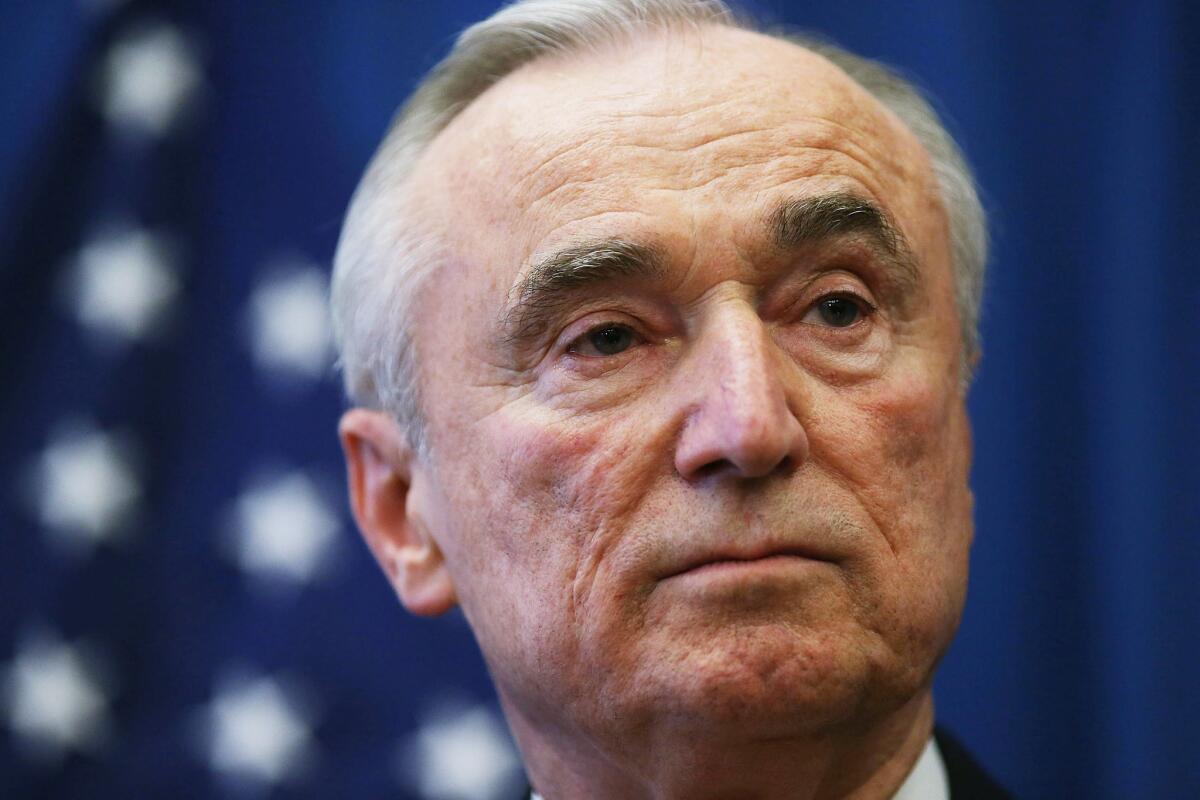Can William Bratton turn around the Big Apple again?

- Share via
Under fire for its controversial stop-and-frisk policy — which a federal judge has declared racially discriminatory and a violation of the 4th and 14th amendments — New York City has turned to a familiar face to lead the nation’s largest police force: William J. Bratton.
Bratton garnered national attention for a dramatic drop in crime while he was New York’s police commissioner in the 1990s. But his subsequent tenure as chief of the Los Angeles Police Department cemented his reputation as a reformer. Though brash and blunt — arrogant, some called him — Bratton managed to both cut crime and significantly improve the LAPD’s relations with African American and Latino communities after decades of mistrust.
That latter skill — reducing crime while respecting civil rights — is just what New York Mayor-elect Bill de Blasio says he needs. We’ll be watching to see if Bratton can manage another turnaround.
YEAR IN REVIEW: Washington’s 5 biggest ‘fails’ of 2013
When Bratton arrived in Los Angeles in 2002, the Police Department was in turmoil. After the Rampart scandal, it was under a federal consent decree designed to root out and prevent officer corruption, as well as to address citizens’ complaints about police abuse. Although previous chiefs had talked about community policing, Bratton made it the bedrock of the department. In addition to emphasizing statistics, mapping and “predictive policing,” he sought to improve race relations by reaching out to critics of the department, hiring a more diverse force and training recruits to respect the communities they served.
Bratton didn’t shy away from aggressive policing. He declared gang members “domestic terrorists” and flooded neighborhoods with officers, using graffiti, trespassing, truancy and curfew laws to clear out gangsters — a tactic tried before with temporary success. But he also demanded accountability and restraint by officers. He sent them to work with community leaders and gang interventionists to mediate disputes and create opportunities for gangbangers to exit the criminal life.
When officers beat and fired nonlethal rounds at peaceful immigration rights demonstrators in MacArthur Park in 2007, Bratton didn’t immediately rally to the side of his troops as his predecessors might have done. Instead, he was angry, acknowledging officers’ mistakes and demanding change.
Bratton’s ego and penchant for self-promotion are legendary. And his blunt language can border on offensive, such as when he called a community activist a “nitwit.” But in Los Angeles, at least, those traits didn’t hinder him or the department.
More to Read
A cure for the common opinion
Get thought-provoking perspectives with our weekly newsletter.
You may occasionally receive promotional content from the Los Angeles Times.






